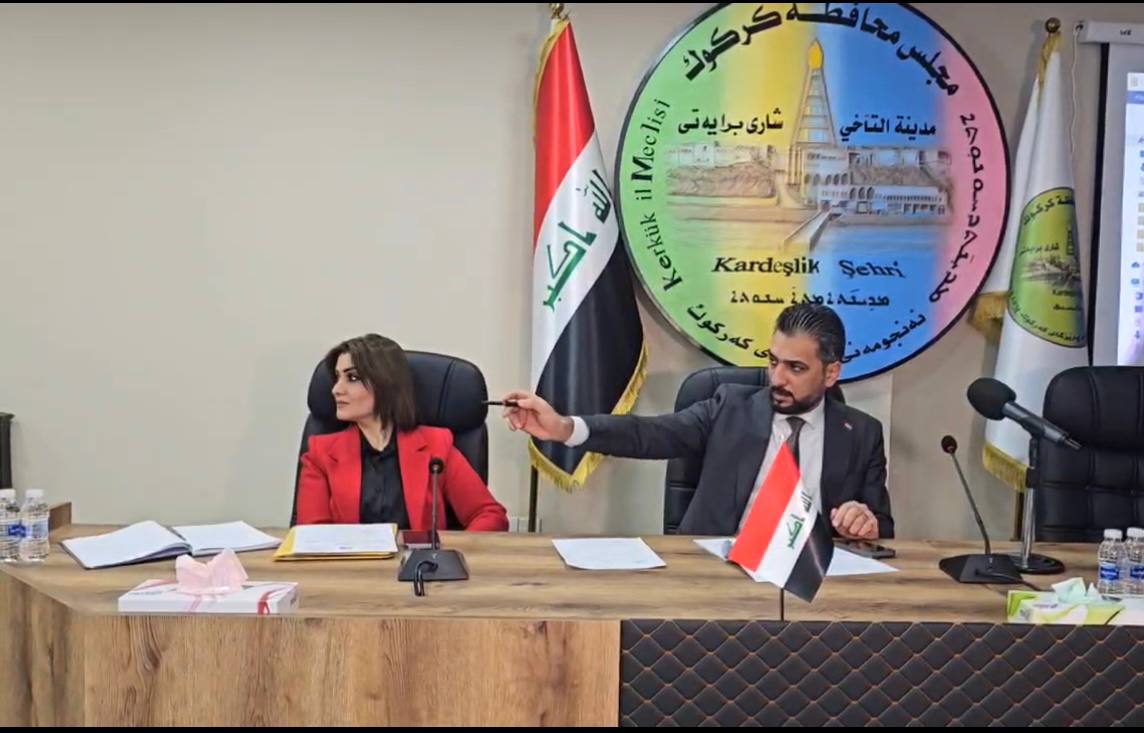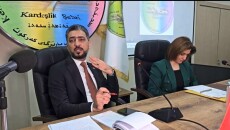The drug use rate in Kirkuk is 0.1%, and efforts are being made to eradicate it, stated the speaker of the provincial council in a consultation session on Tuesday due to the failure to achieve quorum.
On November 26, 2024, the Kirkuk provincial council convened a meeting to discuss the threats of drugs and traffic accidents.
Zahir Anwar Aasi, the only member of Ouruba Faction, has not attended the meeting, which had been previously reported on various social media platforms. It was rumored that he had withdrawn from the local government formation agreement.
Only 9 out of 16 members have been attending the sessions of Kirkuk local administration.
Mohammed al-Hafez, the council speaker, refuted these claims during a press conference attended by KirkukNow. He clarified that Aasi was absent due to illness and dismissed any notions of disruption within the government.
“If he has boycotted, he would have announced it. There are paid pages trying to disrupt the unity of local government.”
The meeting addressed the challenges facing the province, particularly in relation to drug issues, with relevant officials in attendance. According to the council speaker, "The drug use rate in Kirkuk stands at 0.1%. We are committed to combating this issue and
preventing its spread."
The northern, oil-rich, ethnically mixed province of Kirkuk is home to about 1,77 million Kurds, Turkmen, and Arabs. Located 238 kilometers north of Baghdad, it has long been at the center of disputes between the federal government in Baghdad and the Kurdistan Regional Government KRG.
Hafez also mentioned discussions with traffic and infrastructure directors regarding traffic accidents and related matters.
The approval of Kirkuk province's new logo was on the agenda but the previous session had been postponed due to protests from Christian representatives over the absence of the Syriac language on the logo. Artists had been requested to submit alternative logo designs.
"We also met with the director of organized crime to address the issue of food smuggling at checkpoints, which unfortunately occurred in the past," he emphasized.
The 16-member Kirkuk provincial council, split between two opposing factions (nine government members and seven protesters), has yet to finalize most administrative appointments in the province.
The Kirkuk local administration was formed on August 10 in Baghdad by an agreement between the Patriotic Union of Kurdistan PUK, some Arabs, several Shiite Turkmen parties outside the provincial council and the Christians, on condition that senior positions, including the governor and council speaker, be exchanged between Kurdish and Arab communities.
The head of the Arab coalition in Kirkuk, previous acting governor from 2017 to 2023, and the president of ITF have lodged complaints against nine members of the council representing various blocs, including Rebwar Taha, governor of Kirkuk and Muhammad Al-Hafez, provincial council speaker, with the Federal Supreme Court on behalf of the Arab and Turkmen components against the August 10 session in Baghdad that led to the formation of the Kirkuk local administration.
The opposition front in the council, consisting of the Arab coalition, the ITF, and the KDP bloc, deemed the Rashid Hotel session illegal.
Under the law, any council member absent from four consecutive sessions or one-fourth of the sessions in four months without valid reason will be considered resigned.
*This story has been produced as part of the 'Budget is Your Right' initiative, supported by the National Democratic Institute (NDI).






